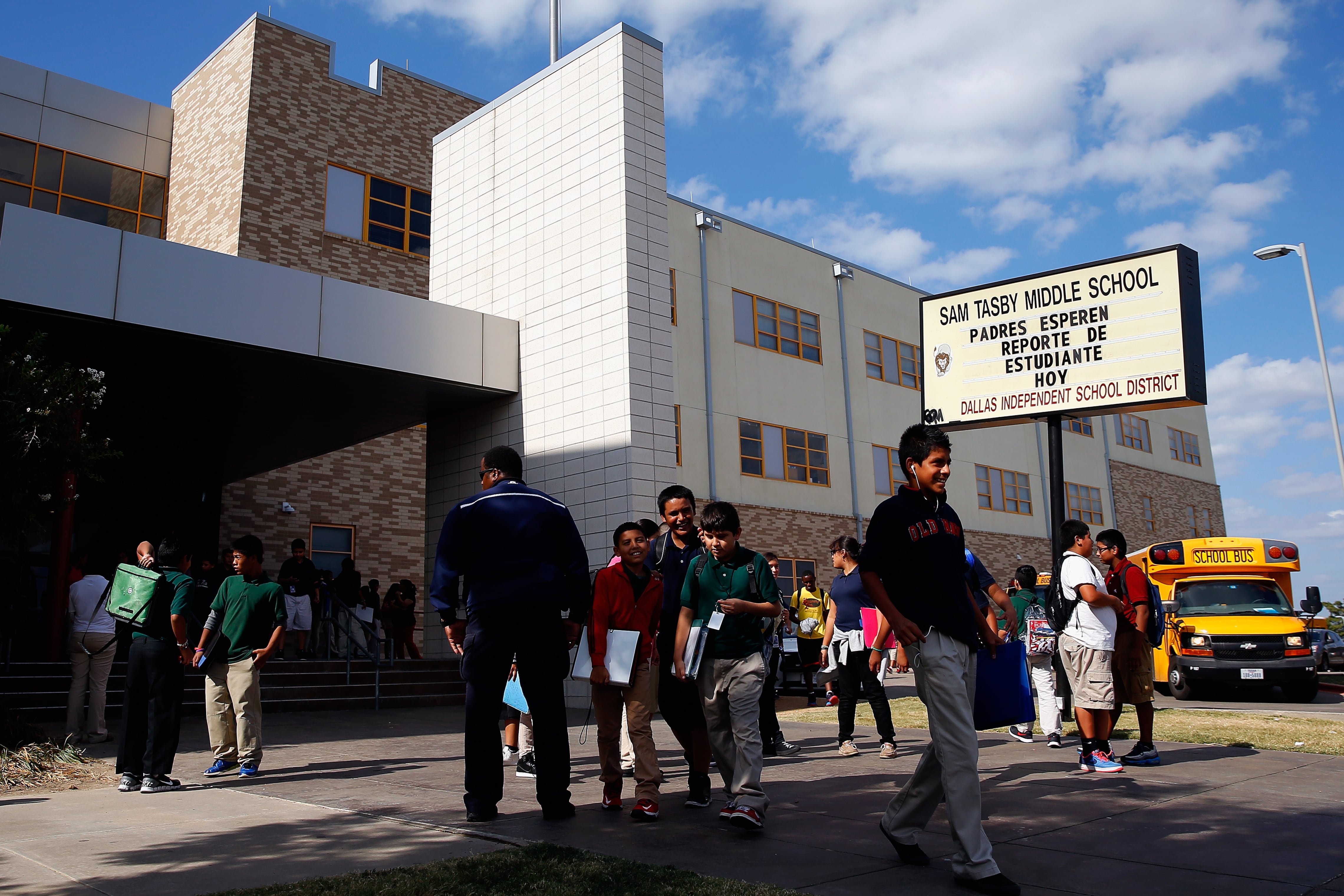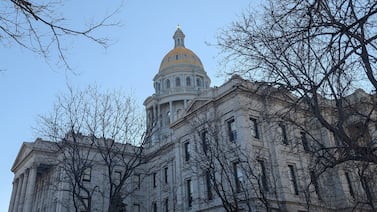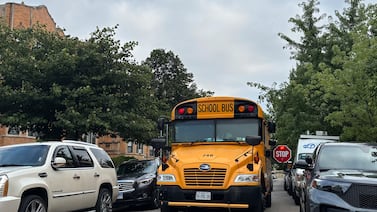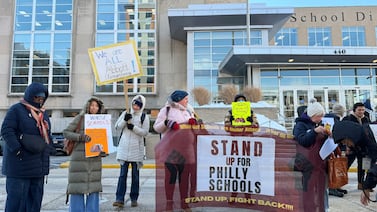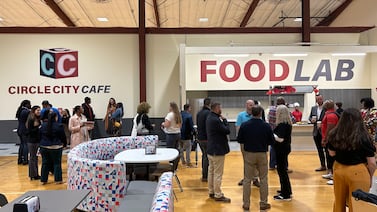Sign up for Chalkbeat’s free weekly newsletter to keep up with how public education is changing.
A Supreme Court case known as Plyler v. Doe that protects the education of undocumented students marked its 40th anniversary this year.
Now, with the high court seemingly poised to overturn Roe v. Wade, another long-standing precedent, one prominent politician hopes Plyler is next.
“I think we will resurrect that case and challenge this issue again, because the expenses are extraordinary and the times are different than when Plyler v. Doe was issued many decades ago,” Texas Gov. Greg Abbott said recently.
The jarring implications of overturning the decision — which could mean kicking out scores of undocumented students from public schools — prompted immediate condemnation from many immigrant rights groups and public school officials.
To be clear, there’s no good reason to think that Plyler is at imminent risk. Legally, Justice Samuel Alito’s draft opinion overturning Roe does not implicate the case. And unlike with Roe, conservative judges have not been telegraphing their opposition to Plyler.
“I hope it’s just much ado about nothing,” said Derek Black, an education law professor at the University of South Carolina. “But we’ve certainly seen polarization on issues, so I obviously don’t rule out the possibility.”
But Abbott’s comments are a sign of the times, as some conservatives see the legal and political window of possibility moving in their favor, particularly on education issues. Abbott could try to put his comments into action, and they could also embolden other policymakers to do the same.
Now that the Plyler decision is facing criticism again, it’s worth understanding what it has stood for, what impact it’s had, and why Abbott’s comments matter.
What Plyler says: Undocumented children can’t be excluded from public schools
Plyler v. Doe centered on a 1975 Texas law that denied state funds for undocumented students and allowed local districts to bar them from public schools.
James Plyler, superintendent of the Tyler school district in eastern Texas, used the law to do exactly that, describing undocumented children as a “burden.” Backed by the Mexican American Legal Defense and Education Fund, four affected families sued.
In 1982, by a narrow 5-4 majority, the Supreme Court ruled for the students, saying Texas’ law violated the 14th Amendment’s equal protection clause.
“By denying these children a basic education, we deny them the ability to live within the structure of our civic institutions, and foreclose any realistic possibility that they will contribute in even the smallest way to the progress of our Nation,” Justice William Brennan wrote for the majority.
The dissenting justices countered that Texas’ law might not be advisable, but it did not run afoul of the Constitution. “The solution to this seemingly intractable problem is to defer to the political processes, unpalatable as that may be to some,” wrote Chief Justice Warren Burger for the four dissenters.
It’s worth noting that, despite its decision, bigotry crept into the court’s deliberations. During their private conference, Justice William Rehnquist, one of dissenters who later became the Court’s chief justice, referred to Mexican immigrants using an ethnic slur, Brennan later said.
What it’s meant: The law has been a bulwark against laws targeting undocumented students’ education for decades
At the time of the decision, Texas was the only state that had a law excluding unauthorized immigrants from public schools. Some have suggested Plyler’s influence has therefore been limited.
Not so, argues Yale law professor Justin Driver in his book “The Schoolhouse Gate,” which surveys the impact of Supreme Court cases in education. The Plyler decision, he says, stopped other states and districts from adopting laws like Texas’.
“It is difficult to identify many opinions in the Supreme Court’s entire history that have more profound consequences in more vital arenas, than Plyler v. Doe’s guarantee that the schoolhouse door cannot be closed to one of modern society’s most marginalized, most vilified groups,” wrote Driver.
Indeed, there have been a number of efforts since then to stop public funding for undocumented students’ education.
In the ‘90s, as part of the backlash to growing immigration, both California and Alabama put in place laws excluding unauthorized immigrants from public schools, Driver points out — and both were quickly ruled unconstitutional by federal courts because of Plyler.
In 1996, a majority of the U.S. House voted to allow states to exclude undocumented students from public schools, although this provision never became law.
Reports in 2010 and 2014 found that many New York school districts were, when students enrolled, requiring information that only legal residents would be able to provide. Based on Plyler, the state later required many districts to drop such requirements.
Just a few years ago, Fox News host Brian Kilmeade claimed that undocumented immigrants were “killing the Texas education system” in a question posed to then-Education Secretary Betsy DeVos. (She respond that “by law, they are welcomed in every K-12 classroom in America.”)
A Tennessee school voucher program passed in 2019 excluded undocumented students from participating, prompting talk of a legal challenge. (The program was halted for other legal reasons.)
“It has been good law — fully enforced law — ever since. Full stop,” said Black, referring to Plyler. “But since the day it was decided, there has been outrage amongst some regarding the decisions and legislative and other agendas to undermine and reverse it.”
Without the protection of Plyler, some of the estimated 700,000 undocumented children living in the U.S. would be excluded from a free public education.
The far-reaching implications of overturning Plyler prompted strong backlash to Abbott’s comments.
Abbott “should back away from following through on his hare-brained, dog-whistle commentary,” said Thomas Saenz, president and general counsel of MALDEF, which brought the Plyler suit four decades earlier.
“We condemn these remarks in the strongest form,” wrote KIPP Texas CEO Sehba Ali. “The right to a public education for all students who reside in Texas is fundamental morally and economically to our state. The worst possible policy solution to our nation’s immigration challenges would be to leave students at home, not learning to read, write and to lead independent lives.”
The long-term forecast: Plyler might not be overturned, but it’s probably not “super precedent” either
Some conservative legal thinkers have criticized the decision over the years. In 1983, current Supreme Court Chief Justice John Roberts, then a lawyer for the Reagan administration, wrote a memo critical of the recent Plyler decision. In a 2014 book, conservative legal scholar Richard Epstein described the decision as based on “judicial manipulation.”
But other conservatives have defended the ruling. In 2017, two law professors penned an “originalist defense” — a way of interpreting laws generally favored by conservative judges — of the Plyler opinion.
Unlike in Roe, as well other cases where the Supreme Court has previously overturned precedent, no members of the current court have signaled their opposition to Plyler (notwithstanding Roberts’ private memo from decades earlier).
Black predicts that if Texas or another state were to exclude undocumented students from schools, a lower court would quickly strike such a law down and the Supreme Court would choose not to take up the case.
Still, the fact that politicians like Abbott continue to criticize the decision may weaken the court’s deference to it.
In Justice Amy Coney Barrett’s confirmation hearings, she described the concept of super precedent as “cases that are so well settled that no political actors and no people seriously push for their overruling.” A super precedent, like Brown v. Board of Education, is “so well established that it would be unthinkable that it would ever be overruled,” she said.
Abbott’s comments indicate that Plyler has not reached that super precedent threshold.
Matt Barnum is a national reporter covering education policy, politics, and research. Contact him at mbarnum@chalkbeat.org.

